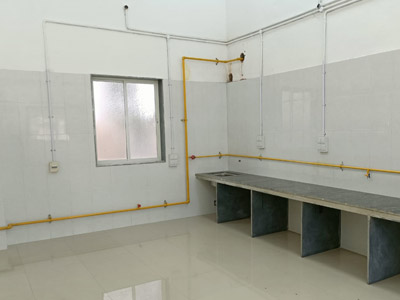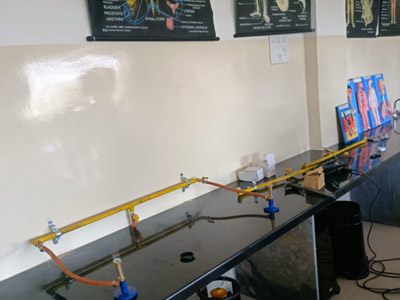A laboratory gas pipeline refers to a system of interconnected pipes and fittings that are designed to transport various gases safely and efficiently within a laboratory setting. These pipelines are essential for delivering gases such as nitrogen, oxygen, hydrogen, helium, argon, carbon dioxide, and other specialty gases to different laboratory instruments, equipment, and experiments.
Key Components of Laboratory Gas Pipeline:
1. Gas Sources: The pipeline system starts with the source of gases, which can be cylinders, bulk gas storage tanks, or on-site gas generators.
2. Gas Regulators: Gas regulators are used to control the pressure of gases coming from the source before they are distributed through the pipeline.
3. Piping Network: The pipeline consists of a network of pipes made of materials compatible with the gases being transported. Stainless steel, copper, and PTFE (polytetrafluoroethylene) are commonly used materials for laboratory gas pipelines.
4. Valves and Fittings: Valves and fittings are strategically placed along the pipeline to control the flow and direction of gases. Ball valves, needle valves, and check valves are common types used in laboratory gas pipelines.
5. Safety Features: The pipeline may incorporate safety features such as pressure relief valves, emergency shut-off valves, and gas leak detection systems to ensure the safe operation of the gas supply.
Importance of Laboratory Gas Pipeline:
A reliable and well-designed laboratory gas pipeline is crucial for the following reasons:
1. Precision and Accuracy: Many laboratory experiments and analytical instruments require a precise and consistent supply of gases. A properly functioning gas pipeline ensures accurate results and reliable performance of instruments.
2. Safety: Handling and transporting gases can be hazardous. A well-engineered gas pipeline with appropriate safety measures reduces the risk of gas leaks and potential accidents in the laboratory.
3. Convenience and Efficiency: A central gas pipeline system eliminates the need for manually changing gas cylinders frequently, providing a continuous and convenient gas supply to various locations in the laboratory.
4. Cost-effectiveness: Bulk gas supply through pipelines can be more cost-effective in the long run compared to the frequent purchase and disposal of gas cylinders.
5. Environmental Impact: Gas pipelines can reduce the carbon footprint by minimizing the transportation and handling of gas cylinders.
6. Centralized Gas Management: A central gas pipeline system allows for better monitoring and control of gas usage, facilitating efficient gas management and reducing waste.
It is essential to design and install laboratory gas pipelines in compliance with relevant safety standards and regulations to ensure the well-being of laboratory personnel, protect valuable equipment, and maintain a conducive research environment. We at Pragati Gas Systems follow all norms. Regular maintenance and periodic safety inspections are also essential to ensure the pipeline's continued reliability and safety.





